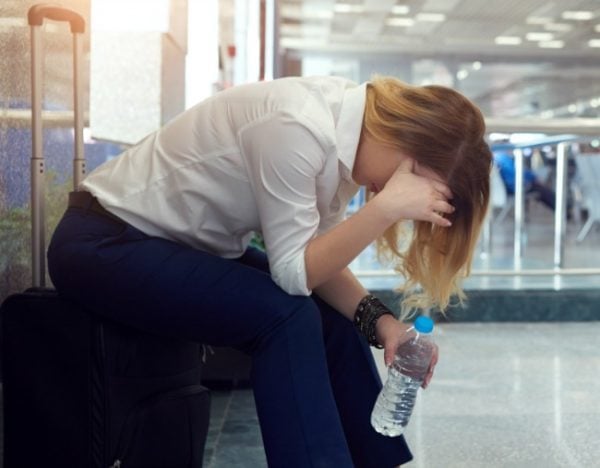When scammers imagine a vulnerable, naive, easy-to-manipulate tourist, they are straight up picturing… my face.
I look chronically dopey – probably because approximately all of the time I have no idea what’s going on. I will hand over money to avoid a social situation being mildly uncomfortable, which is something that in retrospect I most definitely should not have written on the internet.
I’ve been picked up by a taxi at an airport in Thailand, and charged $120 for a trip that took less than 1o minutes. I’ve been billed twice for the same hotel room in Paris. I’ve had a woman grab me at Jamaa el Fna, the main square in Marrakesh, and as I tried to pull away, paint an elaborate henna design on my hand. When she was finished, she demanded I pay what equated to about $80, and became physically aggressive when I (tried) to say no.
If a scam exists in a city I’m visiting, there’s a 99 per cent chance I’m going to fall for it.
After one too many bad experiences, I’ve discovered that the most powerful defence against scammers is knowing precisely what to look out for. Here are the biggest scams that affect Aussie tourists.
“Do you want a photo?”
If someone in a costume summons you for a photograph at a major tourist attraction, just know that you’re going to be paying for it.
A particular hot spot is outside the Colosseum in Rome, where people dress as gladiators and pose for photos with travellers.
At first glance, you’ll think to yourself, “Oh! Isn’t it nice that the local council is paying people to add to the experience!” But the council isn’t doing shit.



Top Comments
In China, I was reluctant to join some young people who approached me in a public square to visit a tea festival with them. I am usually savvy but I let my guard down. They seemed trustworthy so I thought. They took me to a tea house to sample tea. The tea server spoke in Chinese. At the end of the tasting I was handed a bill for the equivalent of $150. The people claimed to be students and as my hosts suggested I pay the bill to thank them for their hospitality. I realised it was a scam but the location was in a building that felt remote. It was in the back of a mall. I was outnumbered and decided not to question it and paid. After we left the mall, I made an excuse and departed from the group. Later, I reported the scam to my tour guide (still out of money) but he acknowledged that this mall was notorious for scams and he had to in the past bail out people in precarious situations.
The same thing happened in Egypt years earlier. I was making my way on foot to the Cairo museum when I approached a well dressed elderly gentleman for directions. He informed me that the museum wasn't open yet and kindly invited me to his store to have some tea as he was celebrating his daughter's wedding. Not ringing alarm bells, I went. Whilst there he presented me with samples of perfumes to try. This was a perfume shop. As I tried to politely leave, he tried to persuade me to buy a range. The perfumes were rather expensive. I ended up leaving buying two bottles of oils costing about $50 telling him I couldn't afford any more. When I made my way to the museum, the signage had indicated that the museum had been open all day.
Two days later at Giza, I off-loaded my change and purchased souvenirs from a female vendor without cohersion. A male approached me after and said that what I did was a good thing helping this local woman. He insisted that I should get a photo on a camel as a thank you. I resisted but before I knew it I was on the camel. He took the photo but for me to get down he insisted that I should give him a tip. I grew angry and refused yelling and throwing things at him.He got me down eventually because I kicked up a fuss. Basically he took advantage of my generosity to the female vendor. At least I got out of this one without any payment.
Overall, I consider my self travel savvy and have been alerted to scams ahead of time but in these instances, I let my guard down. The moral is don't let your guard down ever. If your gut senses something go with it and even then you can get caught out. Join a Facebook group and stay in touch with other travellers.